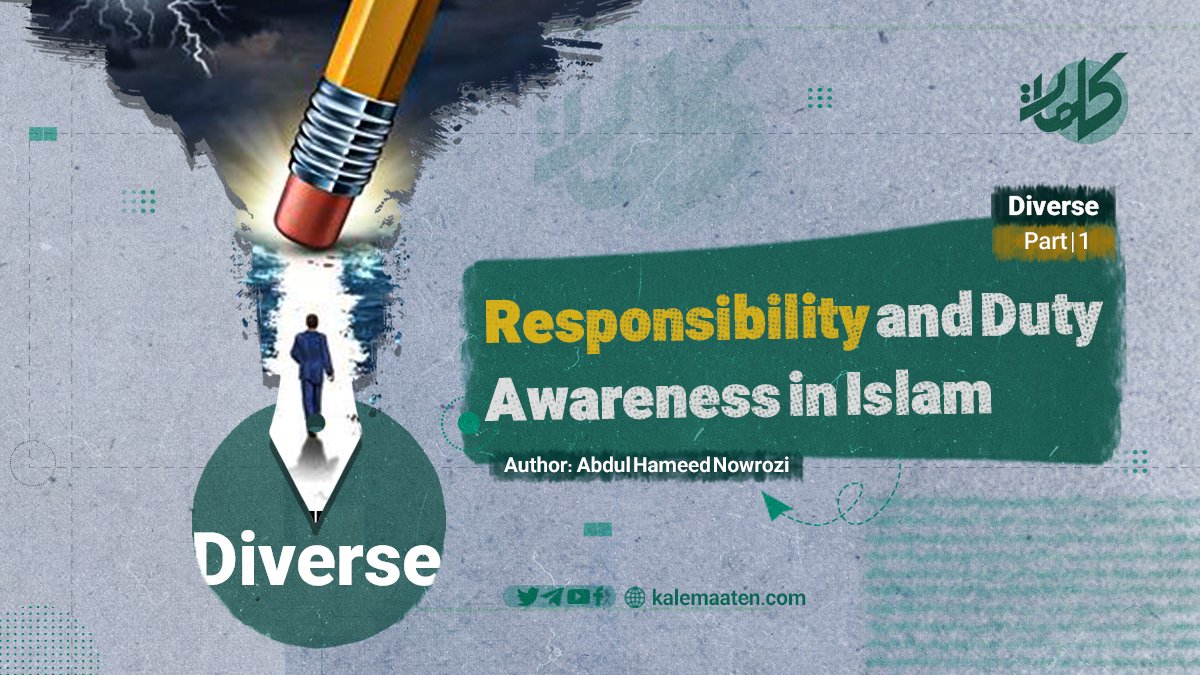
Author: Abdul Hameed Nowrozi
Responsibility and Duty Awareness in Islam (Part one)
Introduction
There is no doubt that every rational and aware person understands that in social life, culture, and within the family environment, there are always certain limitations. It is not the case that a country allows all its people, government members, and cabinet ministers to act as they wish without restrictions. No minister leaves individuals entirely free within their domain of power. A provincial governor establishes laws for their subordinates, who are obliged to collaborate in enforcing those laws. The same applies within the family environment; a well-functioning family undoubtedly has rules and regulations in place to maintain peace and preserve the family unit. In Islam, the concept of responsibility aligns with the necessary limitations that a sound mind demands.
Islam places humans in positions of responsibility, encouraging them to live according to these laws, while often warning them that they will be held accountable for their actions. These measures aim to prevent a person from living recklessly and heedlessly, ensuring they are aware of why they were created and who created them, and that there should be no distinction between them and animals. In the jungle, there are no laws, and animals live without regulation or accountability.
In this article, we aim to discuss the importance, necessity, and significance of responsibility and duty awareness from the perspective of Islam.
Keywords: Responsibility, Accountability, Duty, Duty Awareness.
What is Responsibility?
It should be understood that in the Islamic faith, responsibility does not mean “placing people in a tight spot.” Rather, it means regulating life within a framework of laws. Allah Almighty has made humans responsible to prevent them from deviating onto wrong paths. Upon closer examination, the accountability and responsibility placed upon humans is a great honor and privilege, as it signifies that humans are appointed by God as His vicegerents on earth, responsible for implementing His laws.
When we examine these issues from the perspective of divine religions, we find that the Islamic faith, being the last and most complete divine religion, imposes stricter limitations and demands greater responsibility. In previous religions, prophets were sent to guide people in different regions and eras. However, since Islam is the most complete religion—in which its prophet is the final prophet with no other to follow—the responsibility of this Ummah and the followers of this faith has become even more significant. Every member of this Ummah is considered a successor of the Prophet, because the responsibility of our Prophet was greater than that of other prophets. As the Messenger of Allah (peace be upon him) said, “I was harmed in the way of Allah like no one else…” This statement underscores the immense hardships he endured in the path of Allah, far more than any other prophet experienced. Therefore, the responsibility of the Ummah of the Messenger of Allah (peace be upon him) is much heavier than that of other communities.
Experience has shown that as long as the Ummah has adhered to this responsibility, it has prospered and led in all human endeavors. However, when they became lax in implementing and practicing the religion, they simultaneously lost their true status, dignity, and honor.
In linguistic terms, responsibility means being obligated or committed to carrying out a task.
Duty refers to what is legally or customarily expected of an individual.
Each of these terms is inherently linked to one another. For example, unless a person has a duty, they will not bear any responsibility for performing or failing to perform it, and they will not be held accountable for it.
Continues…


